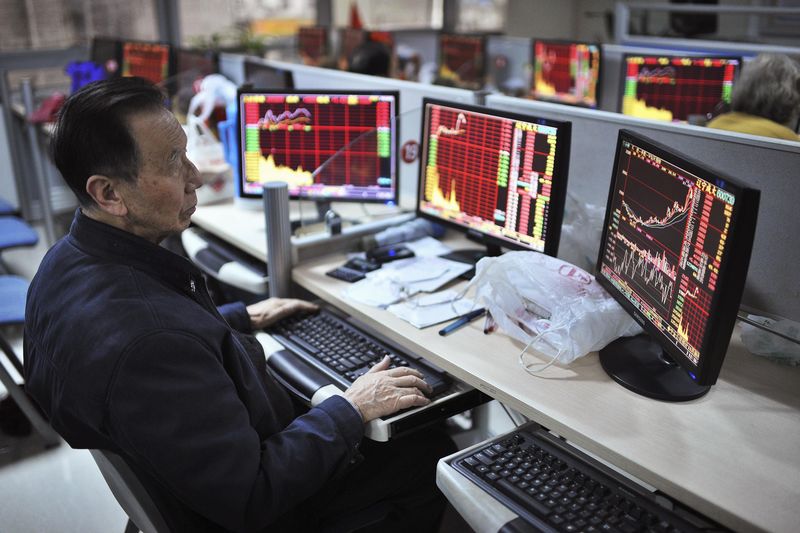Investing.com-- Asian stocks were mixed on Wednesday as investors exercised caution ahead of a key U.S. inflation reading, while Chinese stocks rose in anticipation of more government cues on stimulus measures.
Investors also limited their risk exposure due to geopolitical tensions in the Middle East, after rebel forces ousted Syria's government and took control of Damascus.
U.S. stock index futures were slightly higher in Asian trade, after closing lower overnight due to weakness in technology stocks. Focus is now on key consumer price index data, due later on Wednesday, for more cues on U.S. interest rates.
China, Hong Kong shares rise ahead of CEWC
The Shanghai Composite index rose 0.4% on Wednesday, while the Shanghai Shenzhen CSI 300 index edged 0.2% higher. Hong Kong’s Hang Seng index jumped 0.8%. All three indexes had recorded sharp gains earlier this week.
Focus was on China’s Central Economic Work Conference (CEWC), a two-day meeting starting later in the day. The meeting comes after China's Politburo offered its most dovish signals yet on plans to unlock more stimulus and support growth.
China’s government signaled that it will implement more proactive fiscal stimulus measures and adopt moderately looser monetary policies in 2025, according to the readout of a Politburo meeting chaired by President Xi Jinping.
The impending increase in U.S. import tariffs could significantly impact China’s economy, potentially reducing its gross domestic product (GDP) by 1.5% over the next few years, ANZ analysts said in a recent note.
Broader Asian markets were slightly higher.
Indonesia’s Jakarta Stock Exchange Composite Index rose 0.5%, while India’s Nifty 50 Futures indicated a marginal rise at open.
South Korea's KOSPI extended gains with a 0.6% rise, regaining some of the ground it lost on Monday and in the prior week. South Korean President Yoon Suk Yeol is under criminal investigation for insurrection following his controversial declaration of martial law earlier this month.
A slew of government measures, including injection of funds in the local market, have helped alleviate some concerns over the ongoing political crisis.
Japan shares fall as strong inflation fuels rate hike speculation
Japan’s Nikkei 225 fell 0.6%, while TOPIX was down 0.3%.
Data on Wednesday showed that Japan's wholesale inflation increased for the third consecutive month in November, as businesses faced higher labor and raw material costs. The reading highlighted growing pressure on the Bank of Japan to consider raising interest rates again, amid sticky inflation.
Markets are split over whether the BOJ will raise interest rates again when it meets next week, as recent data showed Japan's economy grew slightly more than initially estimated in the July-September quarter. But growth slowed sharply from the prior quarter.
Elsewhere, Australia’s S&P/ASX 200 lost 0.5%, a day after country’s central bank held interest rates steady, but struck a slightly dovish stance.
Taiwan’s Taiwan Weighted index declined 0.6%, and Malaysia’s FTSE Malaysia KLCI index fell 0.5%, while Philippine’s PSEi Composite index edged 0.3% lower.
